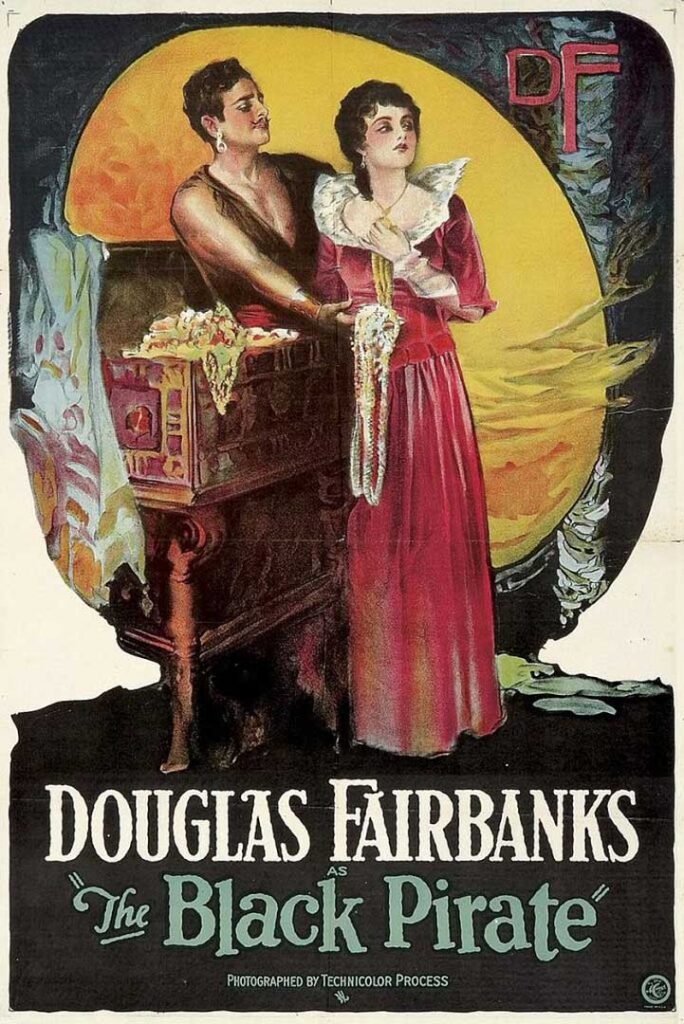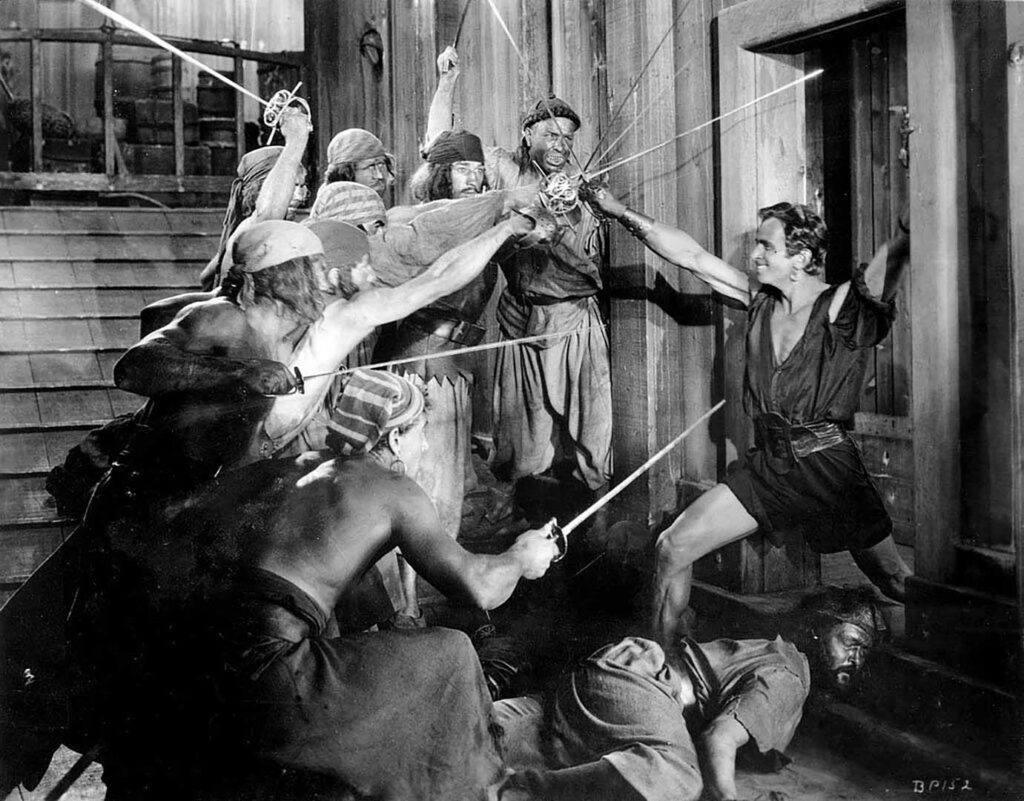The Silent Screen #1
The Black Pirate (1926) Alternative Soundtrack by Lee Erwin
The Black Pirate (1926)
Production: Elton CorpUnited Artists. Address: Albert Parker. Script: Jack Cunningham (argument D. Fairbanks) Photograph: Henry Sharp. Music: Mortimer Wilson, . Interpreters: Douglas Fairbanks, Billie Dove, Anders Randolph, Donald Crist, Temple Pigott, Sam de Grasse. 88 min.
The storyline and defining details of the production emerged from the fantasy of the production itself. Doug: pseudonym of Elton Thomaswhich was none other than Douglas Fairbanks. After "Elton Corp." was also Fairbanks as the actual executive producer.
"The Black Pirate" offers a complete sample of the elements that characterize the subgenre. "of pirates" in adventure films. "The Black Pirate" was the first feature film to be shot entirely on the primitive system. Technicolor. His work is a perfect example of what Chaplin defined: "extraordinary magnetism, charm and genuine youthful enthusiasm."
Music alternative version: Lee Erwin
LEE ERWIN (July 15, 1908 - September 21, 2000)
After the film of Von Stroheimhe wrote scores for such silent films as The Eagle, My Best Girl, Ireneand a couple of films by Buster Keaton. What made the music of Erwin is that he did not try to emulate the typical accompaniment that films would have in the 1920s, which relied heavily on adaptations of established classical pieces. Instead, he wrote his own original music, recognizing that the sophistication of audiences in the 1960s and 1970s made the earlier adaptation approach impossible to recreate. Erwin's success and popularity with these compositions, which he performed at screenings of these films throughout the United States, made him an established recording artist by the time he was in his 60s. In the early 1970s, Angel Records recorded a series of albums with Erwin in which he presented suites based on these scores, which established a new category of soundtrack and classical music. Decades later, Lee Erwin was the only silent film composer or accompanist to enjoy a national reputation, or any recognition beyond the core fan base of those vintage films. Only with the big-budget reopenings of films such as Napoleon from Abel Gance (which used a score from the relaunch sponsor's parent, Carmine Coppolain the United States and Carl Davis in Europe), Erwin found serious competition, and those composers worked with full orchestra, not organ, which was his forte. However, his reputation lasted into the 1980s and extended to work on films such as Radio Days from Woody Allen (in which he played a roller-skating organist) and the recording of films such as 1984's Hotel New York and occasionally quietly rediscovered, like The man without a world. The b also later recorded his music for use in silent film and theatrical presentations.
Lee Erwin - Sound Of Silents - Music For Silent Film Classics
Stamp: Angel Records. USA. 1974 LP. Capitol Records, Inc. Art director: Marvin Schwartz. Design: Jim Endicott. Engineer: Mike Doyle. Mixing: Carson C. Taylor. Music consulted Dick Kline. Photograph: Jack Novak. Produced by Patti Laursen.

